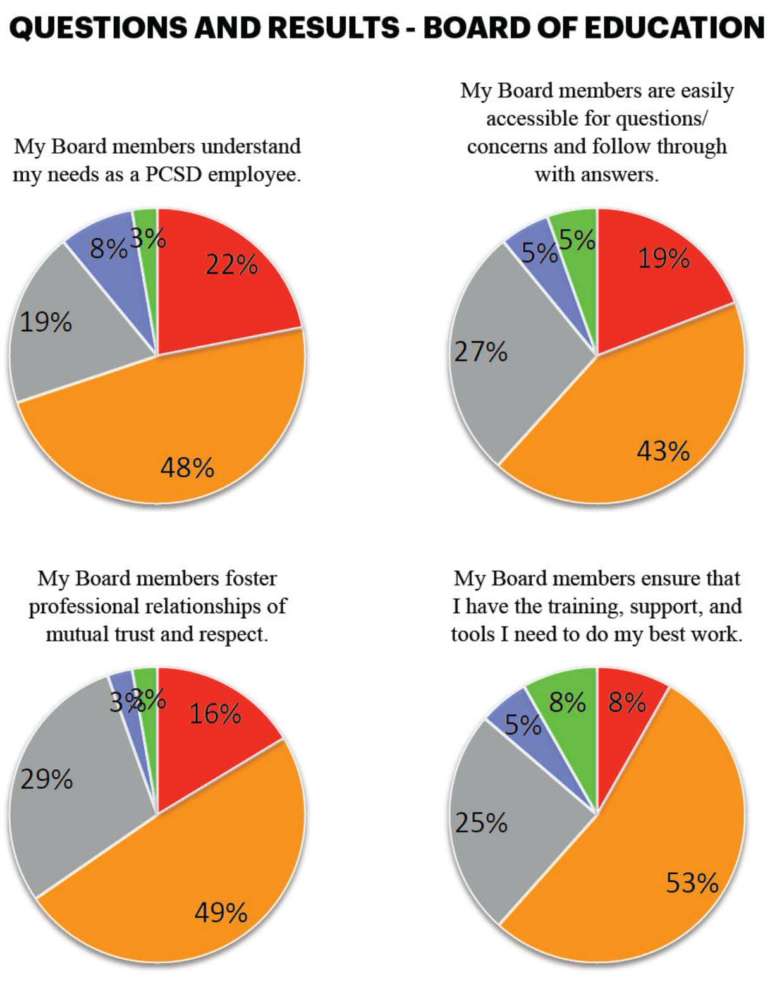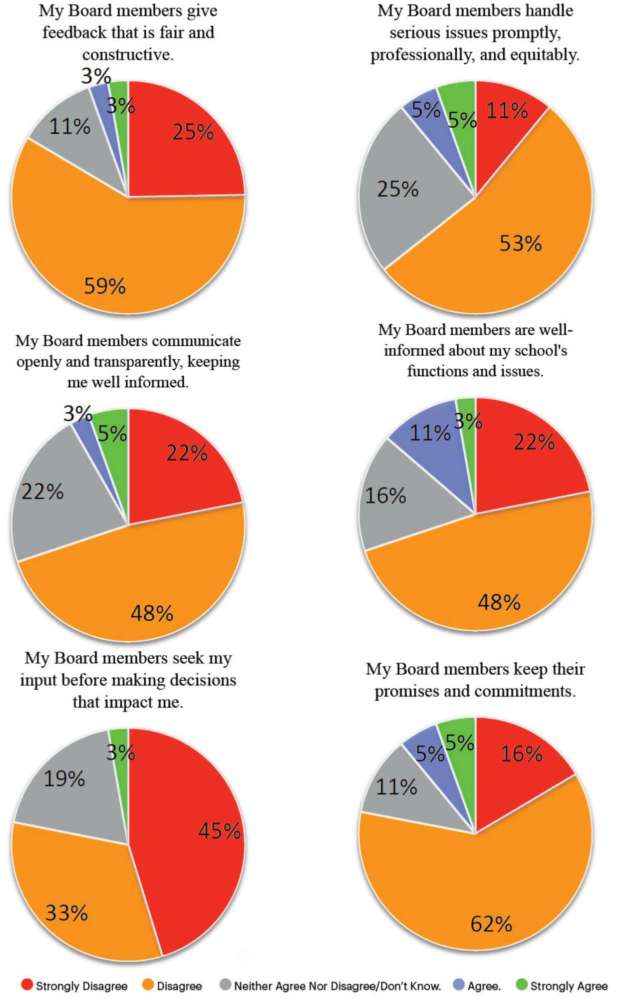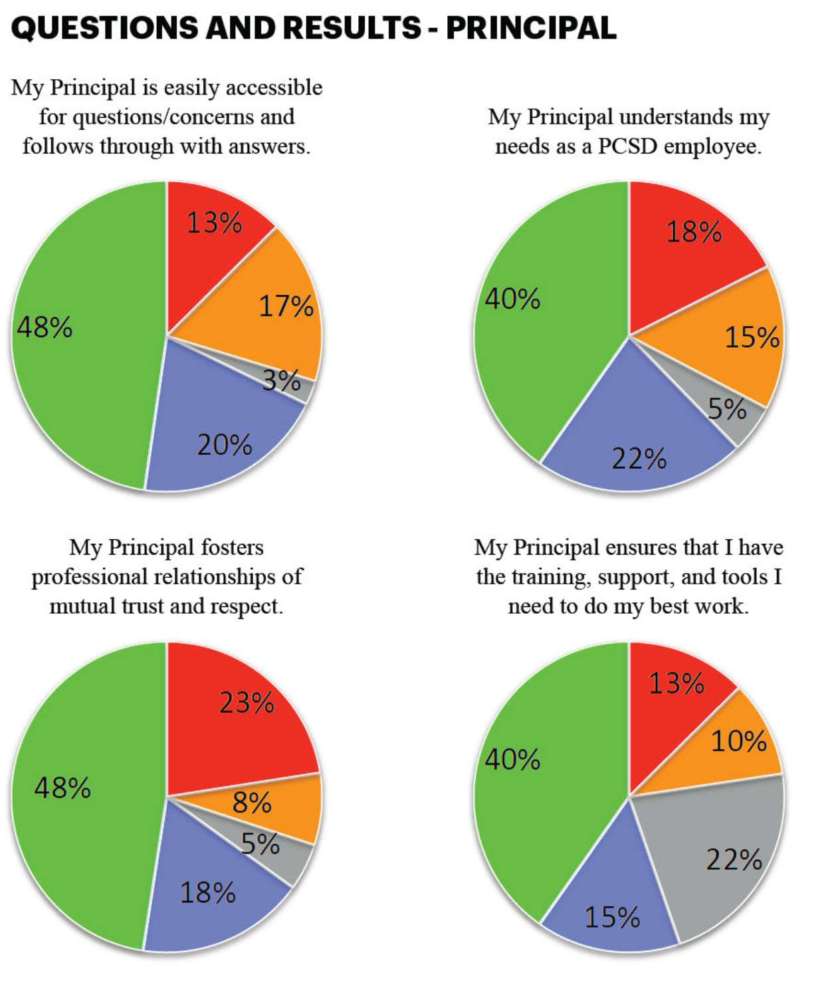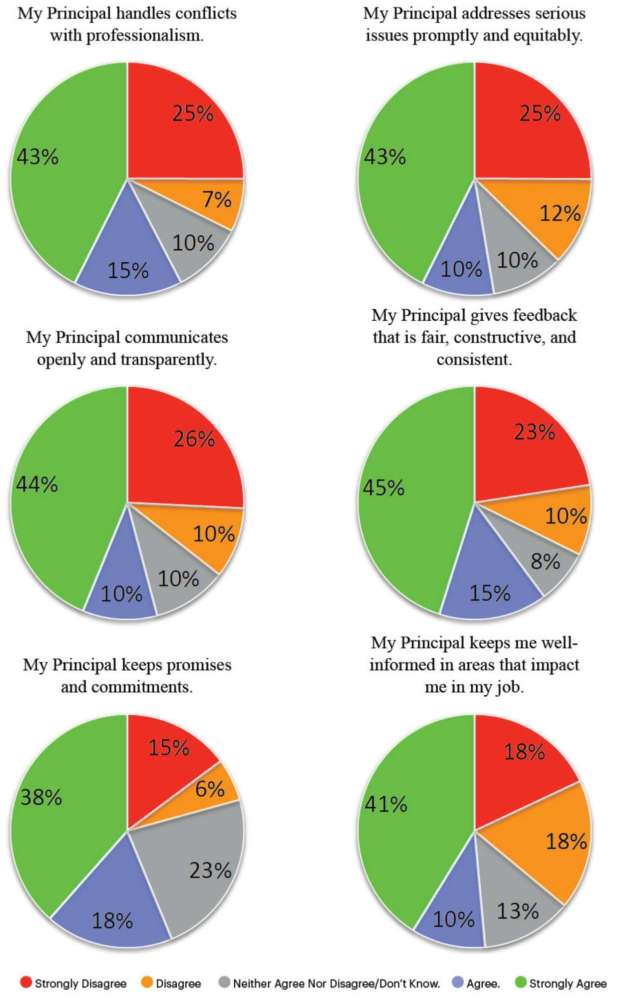Park City School District’s Leadership Faces Severe Criticism in 2024 Staff Survey
Update: Originally, I had written that “A group of advocates surveyed school employees about the Park City School District in 2022 and now again in 2024.” I received comments that felt this implied that all of the same people who were involved with this survey in 2022 were also involved in this iteration. I checked with a member of the group , and not all people involved in 2022 were involved in this survey.
I am sorry for the confusion. I have updated the language. Please see a note at the bottom of this page for information from Educational Advocates.
In April, school employees were surveyed about the Park City School District. This was an anonymous survey from an outside group called Educational Advocates.
I found several interesting takeaways from the survey:
- Principals scored better than the Superintendent in all areas.
- Board members scored very poorly in all areas surveyed.
- The Superintendent scored poorly in all areas.
- 64% of participants either don’t know, disagree or strongly disagree that workplace conflicts are addressed promptly and professionally.
- 32% of participants feel they have the resources and tools to work effectively.
- 48% of participants either don’t know or disagree that serious issues, such as bullying, hate speech, and discriminatory behavior, are addressed quickly, fairly, and professionally in the workplace.
For transparency, I want to disclose my personal background and biases. I ran for the school board in 2022 but did not win. Additionally, I have concerns about the Superintendent’s leadership, believing that her tenure has been marred by numerous scandals in Park City.
With that context in mind, let’s examine some charts and data related to the board of education (school board).


It’s scathing. I had hoped that the new board members would improve the school district, but that’s not apparent in this survey.
- 70% believe the Board members don’t keep their commitments
- 84% feel the Board isn’t transparent
- 70% feel the Board doesn’t understand employee needs
The Board’s best metrics were “The district policies that impact my job are reasonable” and “My Board members know and adhere to education laws, codes, guidelines, and rules” with 30% agreeing on each.
For the Superintendent, it is almost as bad.
- 62% of respondents feel the Superintendent isn’t informed about their school’s issues
- 66% feel the Superintendent doesn’t communicate transparently and openly to keep employees informed
- 61% feel the Superintendent doesn’t keep her promises and commitments.
The Superintendent’s best metric was “My Superintendent knows and adheres to district policies” with 41% agreeing.
When I receive a survey like this, I look for indicators of potential bias. For instance, if all responses are overwhelmingly negative, it raises suspicion that the results may be skewed by disgruntled employees.
However, in this particular survey, it is noteworthy that Principals are generally well-regarded.


I would think disgruntled employees would rate their closest “superior” negatively. That’s clearly not the case. So, the fact that Principals and Assistant Principals were rated so highly tends to confirm the low ratings of the Board and the Superintendent.
I’d be remiss if I didn’t call out one problem with this survey: participation.
In 2024, 453 employees were emailed, 297 opened the email, and 46 responded with answers. That’s a 16% response rate for those who opened the email, which is not great.
According to the survey, “within hours of survey delivery to employees, the PCSD District Office and Principals issued emails or verbal warnings to employees discouraging participation or urging employees to use caution, which we believe had significant impact in survey participation.”
Regardless of the reason, it isn’t as complete a view into the world of our schools as one would hope. Perhaps the other 84% that didn’t respond don’t have an opinion.
My takeaway is that there is value in the opinion of the 16% — especially since feedback was both positive and negative.
If you are interested, I would encourage you to read the survey. Near the end, you’ll get great feedback from survey participants like:
- “My job would be more satisfying if I had less meetings and data graphs to fill out. I need more time to create and personalize lessons.”
- “I feel that we as a system cater to those who resist change. This is why we have seen so little change to our education practices in my 25+ years in education. We can do sooo much more. We have the knowledge. We have example schools. We have the skills. We have the talent… We need to do it. What are we waiting for?”
- “I’m living the dream”
- “I’ve already commented quite a bit on this! PCSD is not only top heavy, it’s top heavy with people that don’t directly impact the children in our district. It’s so frustrating, and the community should be alarmed.”
Overall the survey provides a glimpse into how some employees view the district. I would encourage you to read the the entire survey here.
A note from Educational Advocates on the Survey:
This PCSD employee survey was prompted by the need for employees to speak up without fear of retaliation from upper management. It was created initially by a group of about twelve stakeholders, including a few PCSD employees who consulted on the questions posed, an employee of the State BOE, a survey expert consultant, and members of the PCSD parent and taxpayer community. This group came together with a singular goal of implementing a high-quality, unbiased employee survey wherein employees could provide positive and negative feedback about our local school system. The anonymity of all parties involved is not just a requirement but a condition for personal safety and the survey’s integrity.
For creators, anonymity:
– reduces bias and influence
– minimizes the risk of respondents being influenced by who is conducting the survey
– protects from potential harassment or retribution
– maintains objectivity of the survey process, focusing on data collection rather than the individuals collecting it
– enhances credibility of the survey results, underscoring impartiality and confidentiality of the data collection process
For employees, anonymity:
– encourages honesty, leading to more accurate and valuable insights
– reduces fear of retaliation from peers and supervisors
– generally increases participation rates
– demonstrates that the survey conductors value and respect employee privacy
– increases diversity and detail in responses, providing a richer dataset and more actionable insights for improving the workplace environment.
We urge PCSD and our community not to speculate about the identities of creators and participants.

Comments
Leave a Comment